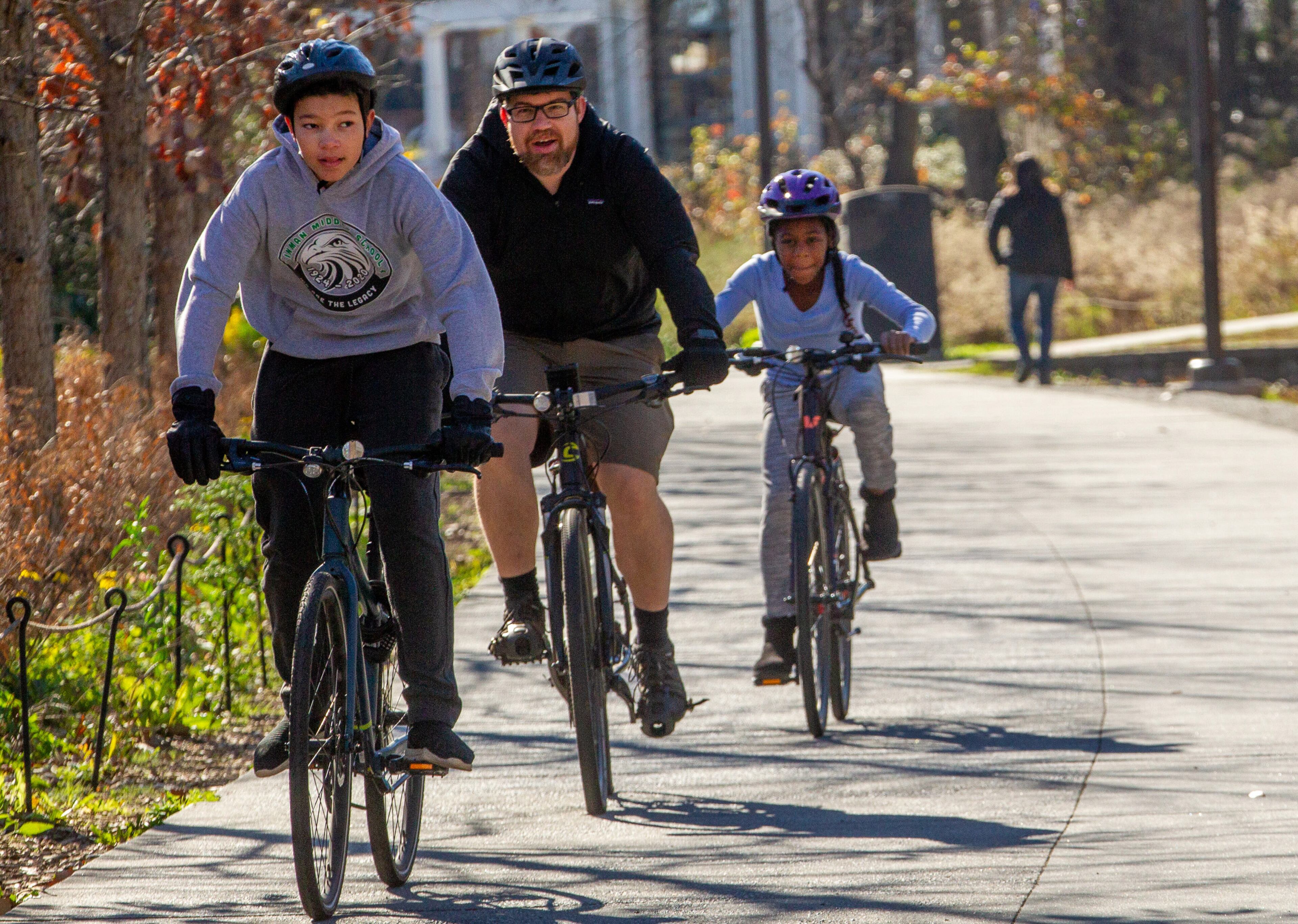AJC EXCLUSIVE: Atlanta Beltline hits $300M funding milestone, on track to finish trail by 2030

The Atlanta Beltline has surpassed the $300 million funding mark for trail construction, declaring it is on track to complete the 22-mile loop by 2030, leaders announced Thursday.
Beltline CEO Clyde Higgs told The Atlanta Journal-Constitution that a new, $80 million donation from The Robert W. Woodruff Foundation, in addition to local tax funding and federal grants, allows the agency to remain on schedule.
“To me, this is one of the best examples of collaboration and something that’s yielded some significant benefits for our city today, and obviously in the future,” said Higgs, who also heralded public-private partnerships that have helped bolster Beltline funding.
So far, roughly eight miles of the 22-mile path have been paved. That number is expected to increase as the Beltline puts a greater focus on project execution in 2022, Higgs said. A recently announced $16.4 million grant from the U.S. Department of Transportation grant will be used to construct about two miles of the Southside Trail, which is set to begin construction next year.
“Now that we have the significant funds in place, it is incumbent on us to be really focused on delivery,” Higgs said. “People will be able to ride a bike from Piedmont Park to Washington Park on the Westside. That is game-changing.”
Higgs said 2021 was an important year for the Beltline in large part because of the “Special Service District” tax the city approved in March.

The tax hike applies to commercial and multifamily property owners located in the Atlanta Beltline Planning Area, a zone that includes the Beltline Tax Allocation District and properties within a half-mile on either side of the trail, including areas that aren’t yet paved.
A property appraised at $1 million pays an additional $800 per year; the Beltline estimates it will bring in $100 million dollars in tax revenue to fund trail construction.
Some local business groups spoke out against the plan, saying it will negatively affect small businesses already strained by the pandemic. But Beltline officials argued it was critical to complete the path on time.
The Beltline has received over $12 million in additional federal funding, and expects to bring in $100 million from the Beltline Tax Allocation District for path construction. The full cost of the trail is estimated at $350 million; Higgs said the Beltline plans to pursue state and federal dollars to close the final funding gap, as well as philanthropic donations through the Atlanta Beltline Partnership.
The agency also plans to continue its strategy of acquiring land around the path to dedicate to affordable housing and mixed-use development. The Beltline recently tripled its land holdings, and now owns 67 acres.



